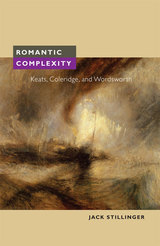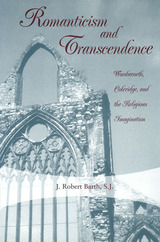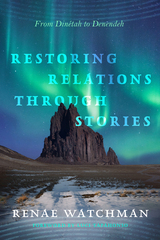


James Engell has prepared the first broad treatment of eighteenth- and early-nineteenth century British criticism to appear in a generation, presenting the views of scores of writers on a variety of questions, many of which remain live issues today.
While offering major reevaluations of Dryden, Hume, and Johnson, Engell demonstrates that eighteenth-century criticism cannot be represented by just a few major critics or by generalizations about Augustan taste, neoclassical rules, or “common sense.” He presents a complex and highly varied body of theoretical writing and practical application by dozens of critics including Rymer, Addison, Welsted, Ramsay, Hurd, Gerard, Newbery, Campbell, Blair, Beattie, Jeffrey, and Hazlitt. He also analyzes the continued relevance of their critical work, drawing connections with modern writers such as Eliot, Frye, Saussure, Barthes, Culler, Bakhtin, and Lévi-Strauss.
Engell concludes with a stimulating essay on the nature and function of the critical process itself. For students and scholars conversant with modern critical theory, Forming the Critical Mind will offer some surprising and interesting comparisons.


Eighteenth-century and Romantic readers had a peculiar habit of calling personified abstractions “sublime.” This has always seemed mysterious, since the same readers so often expressed a feeling that there was something wrong with turning ideas into people—or, worse, turning people into ideas. In this wide-ranging, carefully argued study, Steven Knapp explains the connection between personification and the aesthetics of the sublime.
Personifications, such as Milton’s controversial figures of Sin and Death in Paradise Lost, were seen to embody a unique combination of imaginative power and overt fictionality, and these, Knapp shows, were exactly the conflicting requirements of the sublime in general. He argues that the uneasiness readers felt toward sublime personifications was symptomatic of broader ambivalences toward archaic beliefs, political and religious violence, and poetic fiction as such.
Drawing on recent interpretations of Romanticism, allegory, and the sublime, Knapp provides important new readings of Coleridge, Wordsworth, Kant, and William Collins. His provocative thesis sheds new light on the relationship between Romanticism and the eighteenth century.

In Romantic Complexity, Jack Stillinger examines three of the most admired poets of English Romanticism--Keats, Coleridge, and Wordsworth--with a focus on the complexity that results from the multiple authorship, the multiple textual representation, and the multiple reading and interpretation of their best works.
Specific topics include the joint authorship of Wordsworth and Coleridge in the Lyrical Ballads, an experiment of 1798 that established the most essential characteristics of modern poetry; Coleridge's creation of eighteen or more different versions of The Ancient Mariner and how this textual multiplicity affects interpretation; the historical collaboration between Keats and his readers to produce fifty-nine separate but entirely legitimate readings of The Eve of St. Agnes; and a number of practical and theoretical matters bearing on the relationships among these writers and their influences on one another.
Stillinger shows his deep understanding of the poets' lives, works, and the history of their reception, in chapters rich with intriguing questions and answers sure to engage students and teachers of the world's greatest poetry.

READERS
Browse our collection.
PUBLISHERS
See BiblioVault's publisher services.
STUDENT SERVICES
Files for college accessibility offices.
UChicago Accessibility Resources
home | accessibility | search | about | contact us
BiblioVault ® 2001 - 2024
The University of Chicago Press









